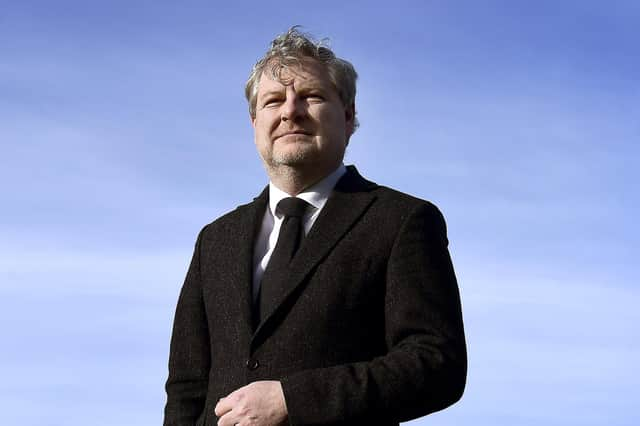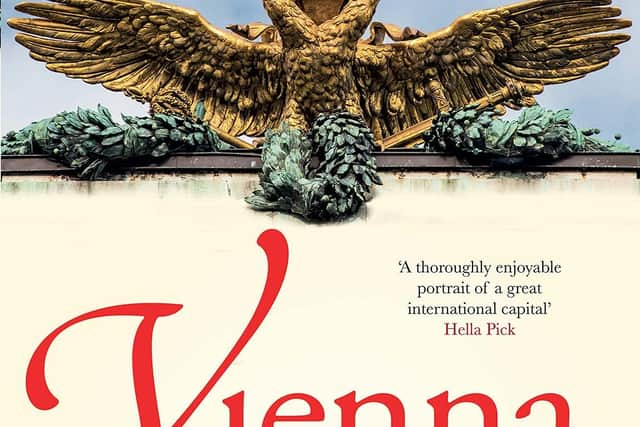Book review: Vienna – The International Capital, by Angus Robertson


When Angus Robertson lost his Westminster parliamentary seat in 2017 – after 16 years as SNP MP for Moray – he seems to have decided not to let the grass grow under his feet. He launched a new pro-independence research organisation, married for a second time, became the father of two young daughters born in 2019 and 2021, and launched his campaign to become a member of the Scottish Parliament, winning the Edinburgh Central seat in this year’s Scottish election. He is now Cabinet Secretary for the Constitution, External Affairs and Culture in the Scottish Government.
Yet that is not all; for Robertson has also been labouring, during these years, to complete this astonishingly comprehensive survey of the history of Vienna, a book as ambitious, panoramic, and full of fascinating detail as the remarkable 1873 bird’s eye view of the city that appears on its handsomely designed cover. Robertson’s Austrian connections are strong; he grew up bilingual, with a Scottish father and German mother, and began his former career as a radio journalist in Vienna in the 1990s.
Advertisement
Hide AdHis love for the city where he spent these years, in the exciting aftermath of the fall of the Berlin Wall, is therefore obvious on every page of this study, which traces the story of Vienna from Roman times to the present day across 366 pages, accompanied by another 80 pages of notes and bibliography. Robertson’s central thesis is that Vienna is a capital that in many ways transcends the nation in which it sits; and has always been a centre for negotiation, administration and exchange among the many peoples of Europe.


The early chapters of the story are interesting enough, although perhaps a little heavy on battlefield detail and military history; but there is a sense of Robertson really finding his rhythm, and a powerful and witty prose style, at the moment when the city – now the capital of the vast Austro-Hungarian Empire – hosts the huge Vienna Peace Conference of 1814, at the end of the Napoleonic Wars, bringing together almost every crowned head, statesman, diplomat, spy, courtesan and gossip-writer in Europe, for what effectively became the nine-month party of the century.
In a sense, that dazzling event sealed Vienna’s reputation as a city of ease, elegance, recreation and beauty, and a mighty centre of culture and the arts; and from there, the story hurtles forward through the massive architectural achievements of the 19th century – the construction of the city’s famous Ringstrasse, with all its glorious public buildings – towards the glittering cultural life and darkening political scene of the fin-de-siecle, when Vienna’s character as a broadly tolerant multicultural capital began to come under direct ideological attack from the forefathers of 20th century Nazism.
The tale of how the glittering international city of 1900 became the defeated and starving capital-without-an-empire of 1918, and then the willing victim of Hitler’s Nazi Anschluss in 1938, is almost too painful to bear, particularly for its impact on the city’s brilliant and well-integrated Jewish minority. There is hope, though, in the final chapters, which make powerful points about the city’s postwar recovery, and its gradual evolution as the location of more than 40 major international organisations, including significant UN agencies.
In the end, Robertson’s book leaves us feeling that for all our recurring claims of innovation, there is little that is new in politics or diplomacy. Time and again, we strive for the essential, elusive goal of unity in diversity; then time and again we see those complex structures torn down by those who prefer simple, single loyalties, and the lies and suppression necessary to sustain them. The sheer vitality and grace of Vienna’s story, though, suggests that the quest is more than worth the effort. Far better, after all, a city of many peoples and languages, that loves, negotiates, creates, gossips, and dances its way into history; than a city that bars its gates to strangers, and knows only how to prepare for the boredom and horror of war.
Vienna: The International Capital, by Angus Robertson, Birlinn, 448pp, £25.00
A message from the Editor
Advertisement
Hide AdThank you for reading this article. We're more reliant on your support than ever as the shift in consumer habits brought about by coronavirus impacts our advertisers.
If you haven't already, please consider supporting our trusted, fact-checked journalism by taking out a digital subscription at https://www.scotsman.com/subscriptions